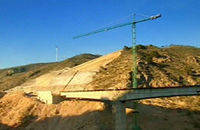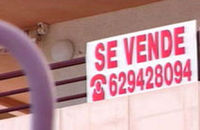
1 Have An Exit Strategy
If all goes to plan, your overseas purchase should be worth big bucks somewhere down the line - but remember, you'll only be able to get your hands on all that cash if you can get someone else to buy it. So, the first thing any budding property investor should think about when weighing up a potential purchase is how and when to sell it. Of course, you can't bank on this going to plan - the market might stagnate or dip - so you should only ever go into a property investment abroad knowing you can afford to lose the money you have put into it. Sounds dramatic? Yes, but oh, so sensible.2 Have A Letting Strategy - If You Need It
If you're buying with cash and looking to make a quick buck through capital growth, letting the property probably won't be your top priority. But if you're planning on a medium to long-term investment with a mortgage in place, letting will be vital to the viability of the project. You need to decide from the outset if your property will attract holiday lets or longer term local lets. For this, you will need to do some serious research... You also need to look into what you can do legally and what licences you need to obtain to be able to do either type of let in the country of your choice.3 Research The Country
Don't rely solely on official or government websites for your information, especially in countries with, shall we say, 'shady' pasts - these can be more about marketing the country to foreign investors (such as yourself) than providing reliable factual information. In general, the questions you should be asking are:- Is the country politically stable? Will some future change, such as joining the EU, provide a shot in the arm, or could a similar change endanger your investment?
- Is the economy growing? What about income levels and employment levels? Are foreign companies moving to the region and investing (their employees can be a good source of well-paid tenants)?
- How much property development is going on, where, and how much competition will this create for tenants and buyers (in Bulgaria there is much talk of oversupply in the ski resorts and on the Black Sea)?
4 Research The Local Area
Check out transport links to main cities and airports - any future improvements are likely to drive up property prices so try and find out about any plans that are in the pipeline.
Similarly large events such as the World Cup or Olympics can provide a perfect opportunity for investors. If you are looking to let your property to holiday makers you should investigate local amenities that might set the area apart - golf courses and beach access are always a plus, while unusual cultural attractions can also prove to be a big draw.
5 Choose The Right Property
If you plan on letting to holidaymakers, consider who your tenants will be (families, young couples, pensioners) and talk to agents to find out what properties and features are most popular with each group.If you buy in an established tourist area, it can be advantageous to have something that sets your property apart from the rest. A pool, a Jacuzzi, a sea-view, or even just a larger number of bedrooms than other properties up for rent - it may be worth paying more for something with a USP. If you buy in a large development, find out how many of the properties are owned by investors and how many are private homes - a good mix of each reduces competition.
If your goal is investment only, don't neglect long local lets - they are less much less hassle and responsible tenants will often ensure the property is well looked after. Remember, long term tenants will be looking for creature comforts - a home rather than a holiday flat -so choose your property accordingly. A swimming pool may not be as important to them as fitted wardrobes and off-street parking.

6 Finance
Apart from the lucky few who are cash buyers, you need to find out how easy it will be to get finance - this will be especially important if you want to re-mortgage a first property to buy a second. When the time comes for money to change hands, make sure that you are not losing out because of poor exchange rates. Check out specialist currency companies like Money Corp and HIFX to find out how to avoid being caught out. And don't forget to factor in any additional costs: stamp duty, taxes, fees, and so on often mount up, so it don't be surprised when things turn out more expensive than planned.
Make sure there are no outstanding payments due on the property, as you may find yourself liable for these when taking on ownership. With off-plan purchases, check the developer's previous work and reputation - and get your lawyer to read over any contracts before you sign them.
7 Buying
Always take up independent legal advice from a specialist who speaks the local language and knows the local system. Remember ownership can be more complicated and opaque overseas, so it's vital to establish that the person selling is actually the owner, and that the agent involved has the authority to sanction the deal. Never sign any documents or make any 'up front' payments without first checking with your legal adviser.Make sure there are no outstanding payments due on the property, as you may find yourself liable for these when taking on ownership. With off-plan purchases, check the developer's previous work and reputation - and get your lawyer to read over any contracts before you sign them.
8 Running Costs
If you plan to let, don't forget insurance, local taxes, maintenance, marketing costs, management fees and service charges. If you're relying on rental income, it is vitally important to factor any void periods into your calculations.9 Selling-On Costs
Don't forget to check out the rules on inheritance tax and capital gains tax before you buy. How these are structured can often determine how you should go about buying - in some countries it's better to set up your own company or buy in the name of a child in order to sidestep hefty taxes.
10 Do Yet More Research
You simply can't do enough research into buying in your chosen country. It's worth consulting the Which? guide, Buying Property Abroad, as well as dedicated property magazines and supplements in the national press. Check out our buying and selling abroad pages and visit www.aplaceinthesun.com, too. Expos and events such as A Place in the Sun Live have useful seminars and huge amounts of interesting information for prospective investors. Developers, agents and various other middle men often put on presentation evenings - these can be useful but remember they are sales people above all else.
Embassies and official tourist websites can give useful information on a country's economy and development, but try not to take it all at face value. Perhaps most importantly, talk to other people who have bought in the area or the development that interests you - they are speaking from experience and will often provide a valuable insight into the experience you can expect as an investor.
The views represented in this article are those of the author and not of Channel 4. The purpose of the article is to provide general information only and does not constitute financial, investment, legal or other advice.You should not rely on any information provided in this article and you should always seek out independent professional advice relevant to your own particular circumstances.
Embassies and official tourist websites can give useful information on a country's economy and development, but try not to take it all at face value. Perhaps most importantly, talk to other people who have bought in the area or the development that interests you - they are speaking from experience and will often provide a valuable insight into the experience you can expect as an investor.
The views represented in this article are those of the author and not of Channel 4. The purpose of the article is to provide general information only and does not constitute financial, investment, legal or other advice.You should not rely on any information provided in this article and you should always seek out independent professional advice relevant to your own particular circumstances.

0 komentar:
Post a Comment